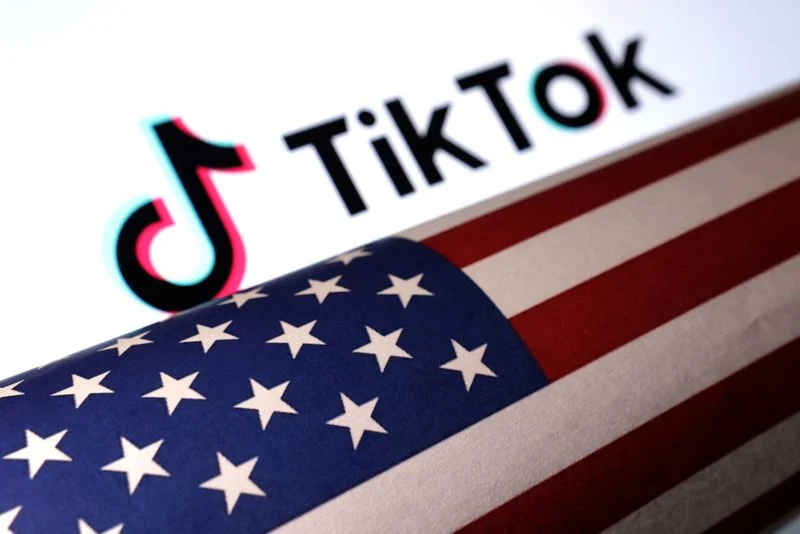TikTok Deal Nears Finalization with April 5th Deadline: Will U.S. Investors Take Control?
TikTok’s Future in the U.S. Hinges on Critical April 5th Deadline
A major turning point in the ongoing saga of TikTok’s operations in the United States is fast approaching, with a pivotal deadline set for April 5. According to a recent report from The New York Times, a deal is close to being finalized that would determine the future of the popular video-sharing app in the U.S. This agreement could reshape the app’s entire structure and how it operates, particularly its unique content recommendation algorithm, which has been at the center of its success.
U.S. Investor Group, Led by JD Vance, Seeks Majority Stake in TikTok’s U.S. Operations
The deal, which is still under negotiation, involves a group of U.S. investors, including influential figures such as Vice President JD Vance. These investors are aiming to acquire a majority stake in TikTok’s U.S. business, a move that could dramatically alter the app’s ownership and control dynamics. Under the proposed agreement, TikTok’s parent company, ByteDance, could retain a minority stake, but the key decision-making power would shift to U.S. investors. This development has sparked significant debate, especially given the platform's crucial role in both U.S. entertainment and the economy.
The proposed deal also highlights one of the most contentious aspects of TikTok's U.S. operations—the app’s algorithm. TikTok's recommendation engine, which curates highly personalized content for its users, is considered a core driver of user engagement. Any changes to this algorithm or its complete exclusion from the U.S. operations could fundamentally alter the app's user experience, potentially leading to a decline in engagement. This shift would likely have significant consequences for the app's popularity and could result in an exodus of users to competing platforms.
Potential Impact on Competitors: Meta, Snap, and Other Social Media Giants
The future of TikTok's algorithm is a central point in ongoing negotiations. Justin Post, an analyst at Bank of America, pointed out that TikTok's ability to deliver personalized content is integral to its user engagement. If a new owner were to lose access to this powerful algorithm, they could struggle to maintain the app's current user base, which could open the door for competitors like Meta (formerly Facebook) and Snap to capitalize on the situation.
Despite these risks, Post also highlighted that the market may be underestimating the potential impact of a TikTok ban in the U.S. on Meta and Snap’s revenue streams. According to Post, these platforms could see a substantial increase in user engagement and advertising revenue if TikTok were forced to halt its operations. While the share prices of both companies have not yet fully reflected this potential revenue boost, the market seems to be betting on a successful resolution to the TikTok situation, with investors maintaining hope that a deal will be struck before the April 5th deadline.
Trump’s Role in the Negotiations: Will the Deadline Be Extended?
In a last-ditch effort to help facilitate the deal, former President Donald Trump has signaled his willingness to reduce tariffs on China. This gesture could play a critical role in bridging the gap between the U.S. investors and ByteDance, potentially speeding up the negotiation process. Trump has also suggested the possibility of extending the April 5th deadline, which has raised legal questions.
Democratic lawmakers have raised concerns, arguing that the President does not have the legal authority to unilaterally extend the deadline without Congressional approval. This dispute over the deadline extension could complicate an already delicate situation, as both sides aim to reach an agreement in time to avoid a forced shutdown of TikTok in the U.S.
What Happens if the Deal Falls Through?
Should the deadline pass without a resolution, the consequences for TikTok could be dire. A failure to secure a deal could lead to a ban, but this outcome may have unexpected consequences. A ban on TikTok could result in an increase in user engagement and advertising revenue for rival platforms like Meta and Snap. Given TikTok’s immense popularity, particularly among younger users, a ban could drive a significant shift in social media dynamics, with other platforms reaping the benefits of TikTok’s absence.
Could the Deal Affect TikTok’s Operations?
Even if a deal is signed, the terms surrounding the TikTok algorithm could have a lasting impact on its operations. Any disruption to the platform’s core recommendation engine could result in a shift in how content is curated and delivered to users. This change could affect everything from user satisfaction to advertiser investment, making it a crucial aspect of the ongoing negotiations.
The possibility of a new ownership structure for TikTok could also affect how the platform is integrated into the broader social media ecosystem. While the app has enjoyed tremendous success in the U.S., its future may be shaped by the deal’s final terms. Investors and users alike are closely watching the situation unfold, with significant implications for both TikTok and its competitors in the social media space.
TikTok Deal: What’s at Stake for ByteDance, U.S. Investors, and the Future of Social Media?
With the April 5 deadline fast approaching, the fate of TikTok’s U.S. operations hangs in the balance. The negotiations surrounding the deal are complex, involving not only changes to TikTok’s algorithm but also questions of ownership and control. The outcome of these discussions will have lasting consequences for ByteDance, the U.S. investors looking to take control, and the future of social media in the U.S. As the deadline looms, the world’s eyes are fixed on TikTok as it navigates this critical juncture in its U.S. operations.
The situation is fluid, and the resolution of these talks could have far-reaching consequences for the platform's user experience, the competitive landscape, and the broader tech industry. While the clock is ticking down to April 5, the world’s eyes are fixed on TikTok as it navigates this critical juncture in its U.S. operations.
Key Citations



댓글
댓글 쓰기